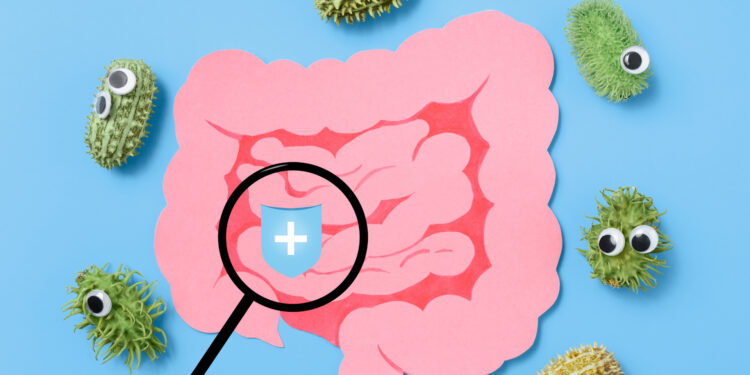The gut, often referred to as the “second brain,” is home to trillions of microbes, collectively known as the gut microbiota. These microbes interact with our bodies in intricate ways, influencing various physiological processes and impacting our immune system, mental health, metabolism, and more.
Our digestive system, particularly the gut, plays a crucial role in maintaining our health and well-being. In recent years, researchers have delved deeper into understanding the intricate relationship between gut health and overall well-being. The emerging field of gut microbiome research has some shed light on the numerous benefits that come from maintaining a healthy and diverse gut microbiota. By nurturing our gut health, we can unlock a plethora of advantages that can positively impact our lives.
We spoke to Ms Tan Yen Yee, Consultant Nutritionist at LAC to find out how to improve our gut health:
BM: What are the best foods to eat for good gut health?
TYY: The best kinds of foods to promote good gut health include a variety of nutrients and compounds that can support the growth and activity of beneficial bacteria in the gut, as well as promote healthy digestion and reduce inflammation. For example, food such as fermented foods, high-fibre foods, prebiotic foods, and omega-3 rich foods are good for the gut.
However, probiotic supplements are also a good alternative for those who are unable to consume these types of foods due to dietary restrictions, or are unable to consume a sufficient amount of them from their meals. Probiotic supplements contain live microorganisms that can maintain or improve the “good” bacteria in the body.
BM: Are there any foods that I should avoid to improve my gut health?
TYY: Yes, certain foods can bring about negative effects on the gut microbiome and digestive system; namely processed foods, high-fat foods, foods with a lot of sugar and artificial sweeteners, alcohol, and even red meat. Health issues arise when unhealthy fats (such as saturated and trans fats) are consumed in excess, promoting the growth of harmful bacteria in the gut, thus leading to an inflammatory response in the gut. Hence, it is imperative for people to always be conscious of what they are consuming.
BM: How do probiotics and prebiotics work, and what foods are good sources of them?
TYY: Probiotics are live microorganisms that can help improve the balance of bacteria in the gut microbiome, reduce inflammation, support digestion, strengthen immunity and many other health benefits like mood health, weight management, etc.
Prebiotics essentially act as food for probiotics, helping them to thrive in the gut. This food ingredient helps to promote the growth of beneficial microorganisms in the gut, which in turn can help nourish the cells lining the gut and promote healthy bowel movements.
One would need to consume different types of foods to get sufficient amounts of probiotics and prebiotics in the body to fulfil different needs.
- Good sources of probiotics include yoghurt, kimchi, miso, and kombucha
- Good sources of prebiotics include asparagus, underripe bananas, whole grains, nuts and seeds, garlic, and onions
BM: Can you recommend any supplements or probiotics that would be helpful for my gut health?
TYY: LAC’s range of probiotics comes in different strengths and strains to cater to individual health needs. For instance, LAC Probiotic Complex 25 Billion CFU powder contains 12 strains of Lactobacillus and Bifidobacterium probiotics to replenish good bacteria levels to maintain healthy gut functions. If you’re looking for probiotics for children, LAC has a range of kids probiotics that come in a yummy jelly and powder.
Additionally, many people may not realise that taking care of the liver would also in turn benefit their gut health. The liver is responsible for producing bile, which helps to break down fats and absorb nutrients in the small intestine. On top of that, the liver also acts like a filter to remove toxins from newly absorbed nutrients. Hence, it is also good to take liver supplements that can benefit both the liver and gut.
LAC Activated Liver Protector comprises a blend of traditional Chinese herbs such as Sanchi, Red & White Peony Root, Hawthorn Fruit, Turmeric, and many more herbs that can nourish the liver and strengthen its functions, as well as prevent and relieve fatty liver which also causes indigestion symptoms.
BM: What are the most common causes of digestive issues and how can I avoid them?
TYY: Very often, digestive issues can happen because of poor diet, stress, or even viral/bacterial infections. When this happens, the body may experience symptoms such as bloating, gas, constipation and diarrhoea.
Reducing digestive issues can be done by making conscious, healthy lifestyle choices such as eating a healthy and balanced diet, and by consuming health supplements to help balance and maintain the gut microflora present in the gut.
BM: How can I improve my digestion if I experience constipation, diarrhoea or bloating?
TYY: If you experience constipation, diarrhoea, or bloating, there are several things you can do to improve your digestion, such as increasing the body’s fibre intake, staying hydrated, avoiding foods that can trigger these digestive symptoms, eating smaller but more frequent meals, and consuming probiotic supplements such as LAC Probiotic Complex as aforementioned.
BM: Are there any tests that can help me determine if I have a gut-related issue, such as leaky gut syndrome or irritable bowel syndrome (IBS)?
TYY: Healthcare professionals can clinically evaluate your overall gut health by taking a stool analysis to identify imbalances or dysbiosis in the gut microbiome. You can also take a breath test to measure the level of gases such as hydrogen and methane to indicate the presence of certain types of bacteria in the gut, or undergo an endoscopy to identify any potential gut issues in the digestive tract.
BM: How can I maintain a healthy gut microbiome and prevent future digestive issues?
TYY: Actively caring for your gut health can alleviate the woes that come with ageing and unhealthy lifestyle habits. Making conscious, healthy lifestyle choices will definitely improve and maintain a healthy gut and liver for the long-term. This includes having a nutritious, balanced diet that is rich in fibre, fruits, vegetables, and lean proteins which can support gut health. Limit processed foods, sugar, and alcohol consumption as they can be harmful to both your gut and liver.
BM: Are there any lifestyle changes I can make to support my gut health, such as reducing stress or getting more sleep?
TYY: Other than dietary changes, lifestyle changes such as managing stress is important in supporting gut health. Studies have suggested that psychological stressors can disrupt the microorganisms in the intestines, even if the stress is only short-lived. In fact, chronic stress is associated with increased intestinal permeability, also known as “leaky gut”. This may lead to chronic inflammation if our bodies are in a prolonged state of stress.
Getting sufficient and good quality sleep is also vital in improving gut health and cognition. Poor sleep habits and disturbed rest can have a negative impact on the gut microbiome, which may increase the risk of inflammatory conditions. Adults should aim to have at least 7 hours of sleep every night.
Smoking also affects gut health and the health of the heart and lungs. A 2018 review published over a 16-year period found that smoking disturbs the intestinal flora by increasing potentially harmful microorganisms and decreasing the levels of beneficial ones.
BM: How can I make sure that I’m getting all of the nutrients I need to support a healthy gut and overall health?
TYY: A balanced diet consists of a good mix of food from the important food groups: carbohydrates, meat or other proteins, and fruit and veggies. Using Health Promotion Board’s My Healthy Plate tool as a guide, half of your meal should consist of fruit and vegetables, while a quarter should be reserved for whole grains and another quarter for meat or other proteins.
For those who have dietary restrictions or lead busy lifestyles, it would be beneficial to take a daily multivitamin along with probiotic products that can tolerate the highly acidic/alkaline gut environment for optimal gut health. As the saying goes, ‘Healthy Gut, Healthy You’ – in doing so, this can promote your overall health and immunity as well.
For those who are unsure of your health needs, do feel free to visit any LAC store for personalised recommendations according to your body needs.



